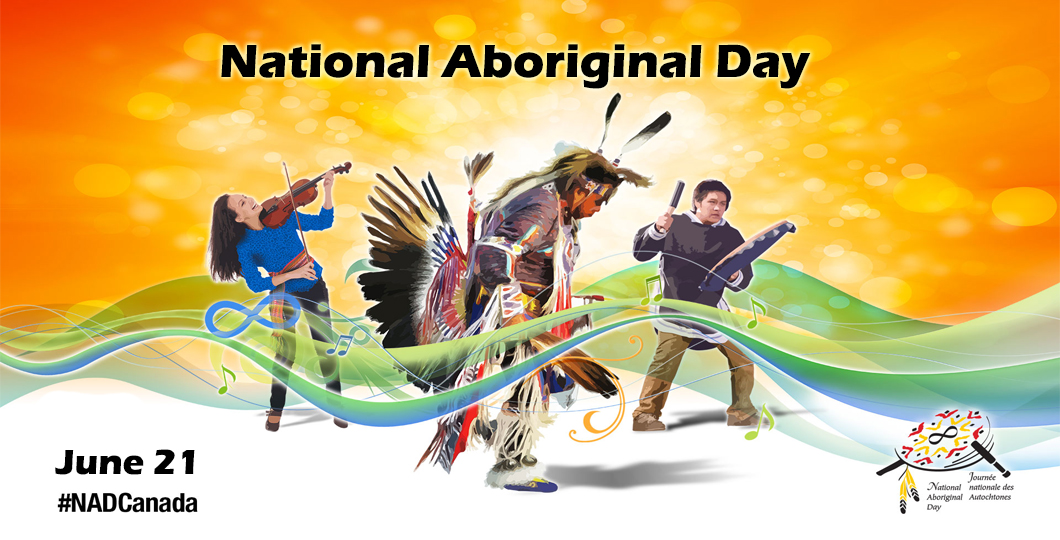National Indigenous People’s Day and Discovery Day 2021

There are times when the calendar shows us the ironies of life … or, at least, the juxtapositions. Today, June 21, is one of those days. However, it must be stated that our culture is slowly catching up. Cynics call it being politically correct.
Others call it waking up to the reality of the world in which we live. Is today a time to acknowledge discovery of new lands by European explorers several centuries ago, or is it a day to acknowledge the original men and women who walked this land?
In Newfoundland and Labrador, the Monday nearest June 24 (the Nativity of John the Baptist), is commemorated as a holiday. Until recently, it used to be known as Discovery Day, honouring John Cabot’s discovery of the island of Newfoundland in 1497.
We now acknowledge that John Cabot and other early explorers, such as Christopher Columbus, didn’t actually discover anything that hadn’t already been home to the First Nations in the nations we know as Canada, the United States, and so many other lands.
In June 2020, it was announced that the name of this June public holiday in Newfoundland and Labrador would be changed in consultation with Indigenous peoples in the province. To speak of discovery failed to recognize historical realities and the experience of Indigenous peoples.
Today is also celebrated as National Indigenous People’s Day (it is known as National Aboriginal Day in the Northwest Territories and the Yukon). This is the 25th anniversary of this celebration of the history, heritage, diverse cultures and achievements of First Nations, Inuit and Métis peoples.
Celebrations of national and provincial holidays have become more complicated than they used to be. Do we name a day for Columbus or Cabot? And their achievements? Do we state where we are living or working without acknowledging the traditional lands on which we are situated?
We live in a culture where statues are being toppled, where institutions are being renamed, and where we can no longer speak or act in a naïve manner about our roots.
Each of us is being offered the gift of humility. Unless we are indigenous, we may have been born here, but we are still newcomers. I have to be humble enough to recognize that, even though I was born in Canada, I remain a guest of the first peoples of this land.
How do guests act? I suppose that humble acceptance is an important part of the response of guests. I am grateful for the welcome I receive. As a guest in your home, I would be grateful for anything you offer – coffee, tea or water. Can I have that same humble attitude to my life in this land?
We recently learned the terrible news of the discovery of the remains of 215 Indigenous children near the former Kamloops Indian Residential School on the lands of the Tk’emlups te Secwépemc First Nation in British Columbia. Since this tragic news broke, other bodies have been found near former residential schools in Manitoba and Saskatchewan.
I am a Catholic priest. Although I understand the legal reasons for the lack of remorse on the part of the Roman Catholic Church, I do not comprehend the moral reasons. I veer somewhere between sadness and anger.
The Kamloops Indian Residential School was one of the largest residential schools in Canada and these deaths are believed to have been undocumented until their recent discovery. A six-year investigation into the residential school system found more than 4,100 children died while attending residential school. However, we now know that number does not truly reflect how many children passed away while at these schools.
These schools were run by Christian churches on behalf of Ottawa from the 1840s to as recent as the 1990s. In 2008, the federal government apologized for the system, but an apology is not enough.
Some Indigenous communities still do not have clean drinking water. Indigenous people still face oppression and systemic barriers.
Today offers us an opportunity to acknowledge our gratitude to the first peoples of this land. They are our hosts. So, perhaps, they also deserve an apology.




Vicky Chen
Posted at 07:21h, 21 Junehttp://www.labradorheritagemuseum.ca/home/labrador_flag.htm
When I was visiting NFLD and Labrador the local tourist guide explained the meaning of the flag of Labrador to us. I was so moved that I bought a T-shirt to remember the philosophy that it promotes.
Wendy McCreath
Posted at 09:28h, 21 JuneWell and truly said, Father Philip. May I add that there will be mainstream TV offerings today to mark National Indigenous Peoples Day, including an address by Murray Sinclair of the TRC, at 9 pm. APTN (Aboriginal Peoples TV Network) should have programming as well. And a worthy cause to donate to is Indspire, that supports young people’s higher education.
Mike Hyland
Posted at 09:38h, 21 JuneThanks Fr Philip. We’ll said!!
Dodzi Amemado
Posted at 16:32h, 21 JuneThank you very much, Fr. Philip!
Sally D Kelly
Posted at 07:50h, 22 July“Some Indigenous communities still do not have clean drinking water. Indigenous people still face oppression and systemic barriers.” All so true, we will learn from the past, we must strive to do better. There is a sadness in the air each time the Indigenous communities are mentioned. Because we know…We are ashamed, we should be. If I am insulted by the photo of our PM laying a small teddy bear at a memorial for all those wee children who died, just think how the communities who still carry their drinking water in buckets, after he made copious promises that 2020 would see fresh running water for all, feel.